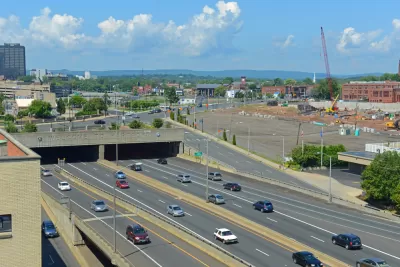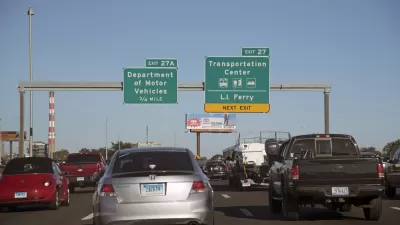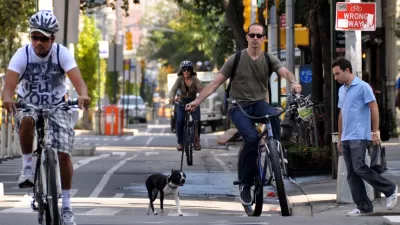A representative of the Regional Plan Association calls for Connecticut's political leadership to go even further in changing the transportation and land use planning paradigm in the state.

Melissa Kaplan-Macey, vice president of state programs and Connecticut director at the Regional Plan Association, writes an opinion piece for the Hartford Courant making the case for a paradigm shift in transportation funding in the Constitution State.
The opinion piece follows shortly on the heals of Connecticut Governor Ned Lamont releasing a new $21 billion capital investment plan called CT2030, which Kaplan-Macey describes as a good, but not perfect, start to achieving the changes called for in the article.
The overarching goal of the plan is to reduce commute times and improve commuter experience. It includes highway improvement projects that seek to reduce congestion, rail improvement projects that speed commutes and limited bus transit investment. It proposes funding these improvements with a mix of federal low-interest loans and revenue from a long-overdue electronic tolling system.
Here's the "not perfect" part:
But the state should reconsider its pursuit of highway expansions that induce traffic and increase air pollution. Instead, the state should manage demand on existing roadways and invest in public transit.
To make the case for an urban focus on transportation spending and additional public transit investments, Kaplan-Macey explains induced demand, cites the rising demand for walkable neighborhoods with access to public transit, laments Connecticut's historic neglect of its urban centers, and builds a counter argument for the already emerging Republican opposition to the CT2030 proposal.
FULL STORY: We should invest in urban centers, not expand highways to get around them.

Alabama: Trump Terminates Settlements for Black Communities Harmed By Raw Sewage
Trump deemed the landmark civil rights agreement “illegal DEI and environmental justice policy.”

Planetizen Federal Action Tracker
A weekly monitor of how Trump’s orders and actions are impacting planners and planning in America.

The 120 Year Old Tiny Home Villages That Sheltered San Francisco’s Earthquake Refugees
More than a century ago, San Francisco mobilized to house thousands of residents displaced by the 1906 earthquake. Could their strategy offer a model for the present?

In Both Crashes and Crime, Public Transportation is Far Safer than Driving
Contrary to popular assumptions, public transportation has far lower crash and crime rates than automobile travel. For safer communities, improve and encourage transit travel.

Report: Zoning Reforms Should Complement Nashville’s Ambitious Transit Plan
Without reform, restrictive zoning codes will limit the impact of the city’s planned transit expansion and could exclude some of the residents who depend on transit the most.

Judge Orders Release of Frozen IRA, IIJA Funding
The decision is a victory for environmental groups who charged that freezing funds for critical infrastructure and disaster response programs caused “real and irreparable harm” to communities.
Urban Design for Planners 1: Software Tools
This six-course series explores essential urban design concepts using open source software and equips planners with the tools they need to participate fully in the urban design process.
Planning for Universal Design
Learn the tools for implementing Universal Design in planning regulations.
Clanton & Associates, Inc.
Jessamine County Fiscal Court
Institute for Housing and Urban Development Studies (IHS)
City of Grandview
Harvard GSD Executive Education
Toledo-Lucas County Plan Commissions
Salt Lake City
NYU Wagner Graduate School of Public Service





























